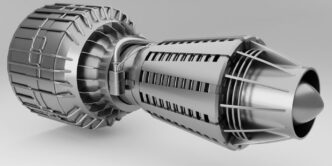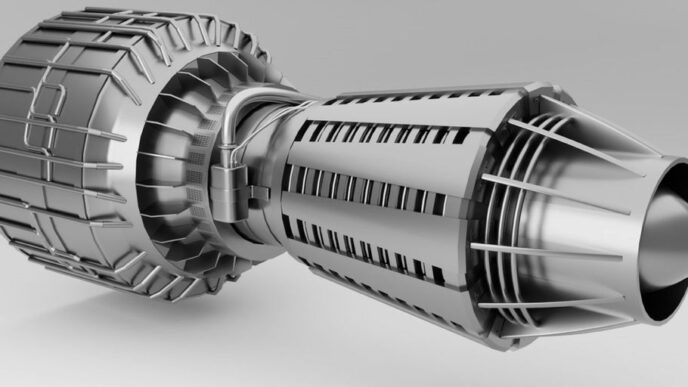If you’re curious about the role of power system analysts in today’s world, you’ve come to the right place. This comprehensive guide will provide you with a deep understanding of the work performed by power system analysts and why it is crucial for our daily lives. From analyzing grid stability to predicting energy demand, this article will take you through the intricacies of this captivating field. So, sit back, relax, and prepare to delve into the exciting realm of power systems analysis!
Who Is a Power System Analyst?
A power system analyst is an engineer who specializes in designing, developing, and maintaining electrical power systems. Leveraging their expertise in electricity, they ensure that the power systems they oversee are efficient, reliable, and safe.
Power system analysts typically hold a bachelor’s degree in electrical engineering, although some may have pursued a master’s or doctorate. Alongside their formal education, power system analysts accumulate valuable experience working with electrical systems.
Responsibilities of a Power System Analyst
The primary responsibility of a power system analyst is to analyze the power system of an electric utility company. This encompasses the transmission and distribution systems as well as the generation facilities. To fulfill this duty, analysts must comprehend the electrical theory underpinning the operation of these systems and effectively apply it to real-world scenarios.
One of the key tasks for analysts is to model the power system using specialized computer software. This modeling enables them to study the potential effects of proposed changes to the system, such as the addition of new generation plants or transmission lines. Additionally, analysts must be adept at identifying existing system issues and recommending appropriate solutions.
The work of a power system analyst necessitates a profound understanding of both electrical engineering and computer science. Typically, a bachelor’s degree in one of these fields is a prerequisite for this role.
Essential Skills and Qualifications for Power System Analysts
To embark on a career as a power system analyst, one must possess strong analytical and problem-solving skills. Proficiency in using computer software applications related to power systems is also crucial. Furthermore, knowledge of various types of power generation facilities and transmission systems is essential.
Common Tools Utilized by Power System Analysts
Power system analysts frequently employ several tools to comprehend electrical systems and identify potential issues.
Power flow analysis tools are particularly vital. They enable analysts to visualize how electricity flows through the system, allowing them to identify areas with excessive demand or potential bottlenecks.
Another valuable tool is the short circuit analysis tool, which helps identify areas at risk of short circuits. Factors contributing to short circuits may include loose connections or damaged equipment.
Lastly, protection coordination analysis tools play a significant role. These tools ensure the proper coordination of protection devices within the system, minimizing disruptions to service and safeguarding equipment from damage.
Different Career Paths for Power System Analysts
Power system analysts can pursue various career paths based on the size and scope of the organizations they work for.
The most common career path for power system analysts is within the operations center of a utility company. In this role, they monitor the electrical grid and promptly respond to any issues that arise. They may also contribute to projects aimed at enhancing grid efficiency or integrating new renewable energy sources.
Another potential career path involves working in the planning department of a utility company. Analysts in this capacity develop long-term plans for expanding and improving the electrical grid. This includes planning for new power plants or transmission lines as well as designing upgrades for existing infrastructure.
Government agencies and private consulting firms that provide services to utilities also offer employment opportunities for power system analysts. In these roles, analysts may contribute to planning and design projects or provide expert testimony during rate hearings.
Benefits of a Career as a Power System Analyst
Becoming a power system analyst offers a range of benefits, enabling individuals to contribute to the efficient functioning of the electric power grid and make a positive impact on organizations’ performance.
The benefits of pursuing a career as a power system analyst include:
Job security: The electric power industry is experiencing rapid growth, resulting in high demand for qualified power system analysts.
Competitive salary: Power system analysts earn a median annual salary of $85,000, with top earners surpassing $115,000 per year.
Engaging work: Power system analysts have the opportunity to work on diverse and challenging projects that directly influence the electric power industry.
Flexible working hours: Many power system analysts enjoy the flexibility of setting their schedules and working remotely from home or other locations.
Advancement opportunities: High-performing power system analysts often have opportunities to advance into management positions.
Conclusion
Power system analysts play a vital role in ensuring the safe and efficient operation of the power grid. Their work guarantees a reliable, secure, and cost-effective electricity supply. Understanding the responsibilities of these professionals can assist businesses in finding qualified candidates for available positions. This guide has provided an overview of the multifaceted tasks performed by power system analysts as well as guidance on pursuing a career in this field. By comprehending the critical role they play within the energy industry, you can ensure that your business runs smoothly and safely for years to come.













